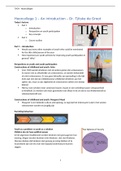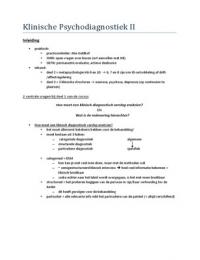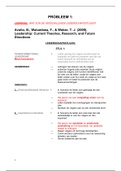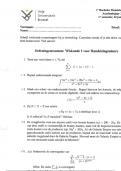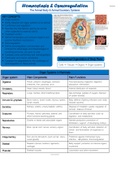College aantekeningen
TVOY: Alle hoorcolleges
- Instelling
- Universiteit Utrecht (UU)
In dit document zijn de aantekeningen opgenomen van alle hoorcolleges van het vak The Voice of Youth, aan de Universiteit Utrecht. Omdat het vak geheel in het Engels wordt gegeven zijn de aantekeningen ook in het Engels.
[Meer zien]
